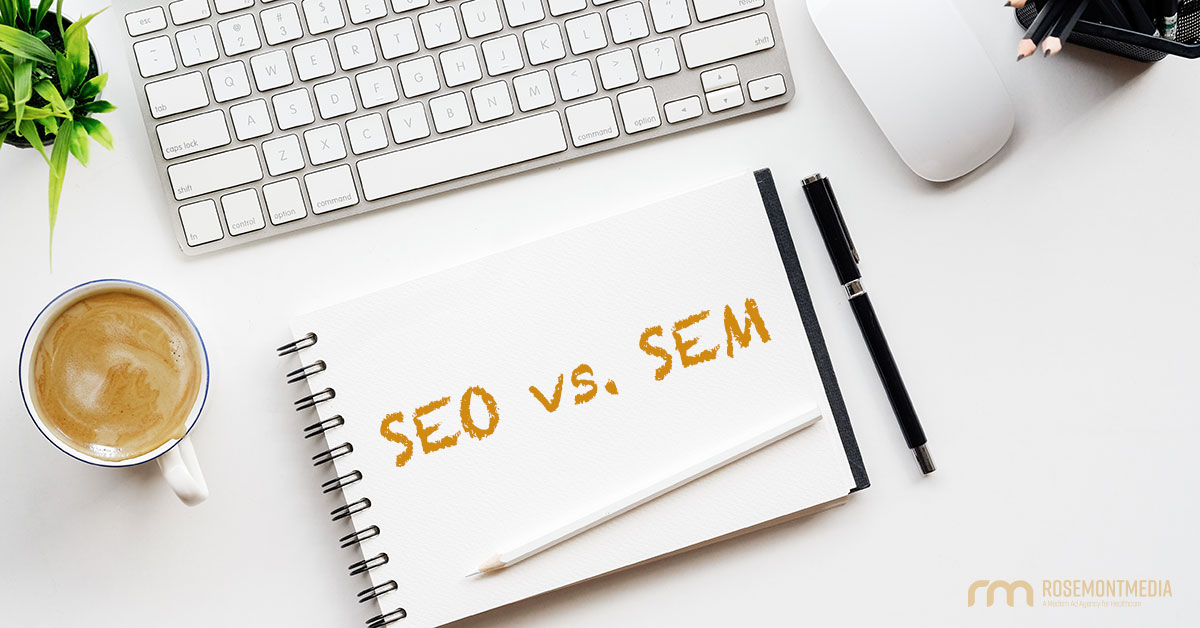SEO vs. SEM

Search engine optimization (SEO) and search engine marketing (SEM) are popular buzz terms in the digital world. If you have a website for your medical or dental practice, there’s a good chance you’ve heard both used—sometimes interchangeably—to describe efforts that aim to boost traffic and enhance brand awareness online. Although the two acronyms have the same overarching goal, they are not synonymous with each other. So, what exactly is the difference between SEO and SEM?
Search Engine Optimization (SEO)
To put it simply, SEO is part of SEM. It’s an organic method for getting traffic to your website by helping the search engines better identify and organize your information within their results. To optimize your website, you have to implement different strategies through the use of keywords, interlinking, content marketing, video optimization, website development, and more. Based on how these strategies affect your search engine rankings, you can adjust them to find what provides the most favorable outcome.
SEO is a tactic that often takes time to show results. Although it is a highly cost-effective method for gaining traffic, it requires careful planning and the knowledge/foresight of what to change if the search engines aren’t responding like you had hoped (i.e. indexing your website near the top of Google results). Over time, as you implement best practices for your website’s SEO, you have the potential to organically attract more people to your site—and ultimately your practice.
Search Engine Marketing (SEM)
As stated above, SEM includes SEO, but it goes beyond this natural means of gaining traffic. SEM also entails the use of media buying and paid advertising, like Google Ads or Pay-Per-Click (PPC). This means you’re buying space within the search results to put your website in front of organic results. The most valuable SEM strategies typically incorporate the use of best SEO practices as well as the purchasing of ad space.
In general, paid search advertising tends to provide faster results upfront compared to SEO. However, it only works for as long as you are purchasing those ads, which is why laying a strong foundation of SEO is crucial for your long-term success. With that in mind, paid advertising can still be extremely effective considering you are specifically targeting who you want to reach; therefore, you aren’t only controlling how often your site appears in search results, but also how relevant it is to those searching.
Combining Organic and Paid Search Results
We now know that SEM is the effort you put into boosting awareness of and traffic to your website through search engines—SEO is the organic method of achieving this, while paid advertising / media buying is an avenue to purchase your way into the search results.
To get the most out of your practice website, you should combine SEO and paid online advertising into one cohesive SEM strategy. By doing so, your website can continue to gain speed as more and more people find your information within their searches.
If you want to increase your practice’s online visibility but aren’t sure where to start, contact our team of experienced SEM professionals! We would love to help you develop an all-inclusive Internet marketing plan to make the most of your website and online presence.
Editor’s note: The original version of this post was published on November 8, 2016.